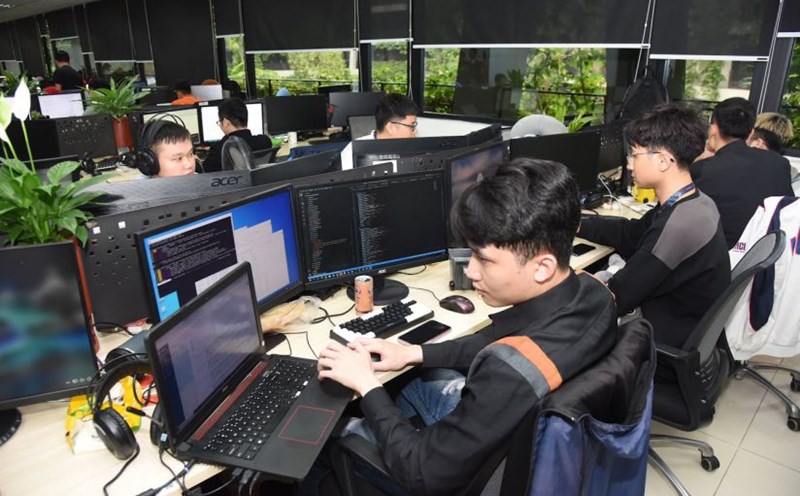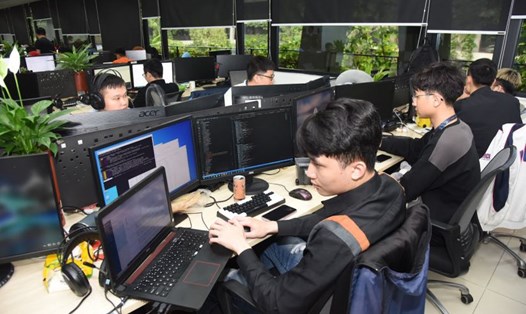Artificial intelligence is changing the way we live, work, and communicate. Leading technology companies like Apple, Google, and Microsoft are all pushing to integrate AI into their products, from smartphones to personal computers. Features like automatic photo editing, schedule reminders, and phone scam detection are no longer far-fetched but a reality.
But to achieve these feats, tech companies are relying on an invaluable resource: Personal data. This is not just basic information about our names, addresses, or phone numbers, but also our every action, habit, and interaction on technology platforms. This data is used to train AI models, making them smarter, more knowledgeable, and more useful.
But this process is not without risks. As more of our personal data is shared and processed on remote servers, security and privacy issues become more pressing than ever. Is this access worth the convenience that AI brings? And what can we do to protect our data in this new age?
The importance of personal data
Personal data is the foundation for the development of artificial intelligence. For AI to work effectively, systems need to be “trained” on a large amount of information, including sensitive data such as shopping habits, personal preferences, search history, and even our daily interactions.
Apple, one of the pioneers of technology, launched Apple Intelligence service with the promise of breakthrough utilities. For example, the system can automatically identify and remove unwanted details in photos, summarize email content or support text message replies. What differentiates Apple from its competitors is its commitment to process most of the data right on the user's device, to minimize the risk of information leakage.
However, in some cases, to ensure performance and accuracy, data still has to be sent to central servers – where it can be hacked or misused. This is especially worrying when the data sent is not just basic information but also sensitive data such as images, emails or personal conversations.
Google, with its advanced AI features like “Ask Photos” and its ability to detect phone scams, is also making the most of user data. The “Ask Photos” service allows users to ask questions to search for images in their personal libraries, but to do so, the data must be sent to Google servers. While the company claims to have strict security measures in place, the risk remains when this information leaves the user’s control.
Not to be outdone, Microsoft has introduced Recall – a system that helps users find documents, emails and web pages based on the smallest details. Although this feature brings great convenience, the fact that it records every action of the user on the computer also raises big questions about privacy.
The importance of personal data extends beyond technology to the creation of huge business opportunities. Data helps companies better understand their customers, allowing them to create more relevant products and services. However, this also means that users are increasingly vulnerable to security risks.
Data security in the new era
As artificial intelligence becomes more prevalent, security and privacy risks increase significantly. Personal data, when stored and processed on remote servers, becomes an attractive target for hackers, cybercriminals, and even governments.
One of the biggest problems is that personal data is now used not only to serve users but also for other purposes, from advertising to surveillance. Tech companies often pledge to protect user privacy, but in reality, transparency about how data is handled remains limited.
Apple, for example, claims that user data is encrypted and deleted immediately after processing. However, not all AI requests are processed directly on the device. Some data still has to be sent to servers, which is a weak point in the security chain. Google, despite implementing security measures like encryption and access controls, has been criticized for its lack of transparency. Its “Ask Photos” feature, while convenient, has raised concerns about employees accessing user data to “check for abuse.”
Microsoft, with its Recall feature, faces a similar challenge. Storing screenshots of every action a user takes on a computer can have serious consequences if the system is compromised. Data is not only the user's property, but also contains information that can cause serious harm if exposed.
To protect personal data in the new era, users need to be more proactive in controlling their information. Using strong passwords, enabling two-factor authentication, and limiting access to applications are basic but effective steps. In addition, users need to regularly update software to ensure security vulnerabilities are patched promptly.
For tech companies, transparency is key. Detailed reports on what data is collected, how it is processed, and how long it is retained should be made public. At the same time, giving users control over their data – from reviewing, editing, to deleting – is essential to building trust.
In the whirlwind of personal data, artificial intelligence brings many benefits but also poses great challenges in terms of security. Personal data is not only the foundation for the development of AI but also a valuable asset that needs to be protected. Only with cooperation between users and technology companies can we maximize the benefits of AI without sacrificing privacy. In an era where information becomes gold, protecting personal data is not only the responsibility of companies but also the right and obligation of every user.









